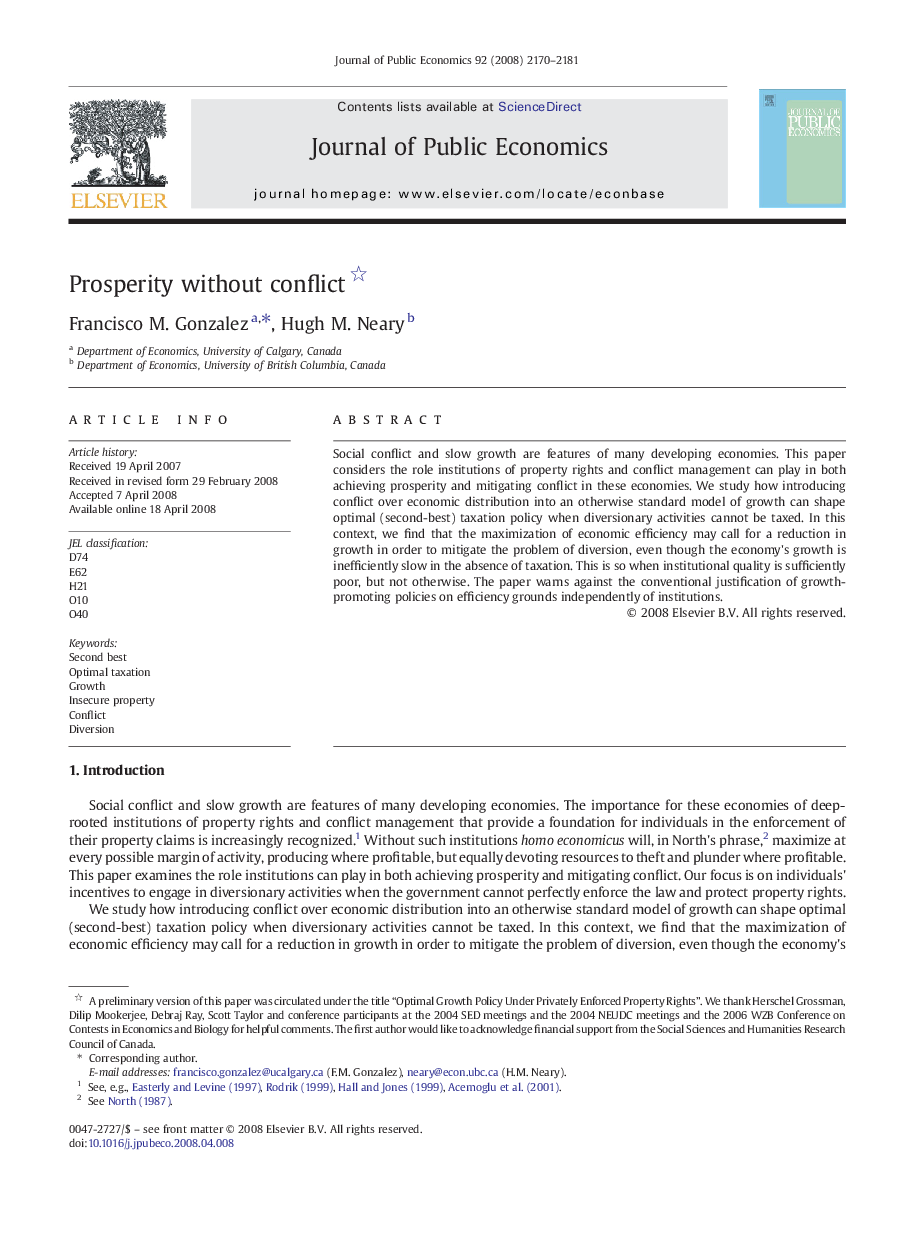| Article ID | Journal | Published Year | Pages | File Type |
|---|---|---|---|---|
| 970259 | Journal of Public Economics | 2008 | 12 Pages |
Abstract
Social conflict and slow growth are features of many developing economies. This paper considers the role institutions of property rights and conflict management can play in both achieving prosperity and mitigating conflict in these economies. We study how introducing conflict over economic distribution into an otherwise standard model of growth can shape optimal (second-best) taxation policy when diversionary activities cannot be taxed. In this context, we find that the maximization of economic efficiency may call for a reduction in growth in order to mitigate the problem of diversion, even though the economy's growth is inefficiently slow in the absence of taxation. This is so when institutional quality is sufficiently poor, but not otherwise. The paper warns against the conventional justification of growth-promoting policies on efficiency grounds independently of institutions.
Related Topics
Social Sciences and Humanities
Economics, Econometrics and Finance
Economics and Econometrics
Authors
Francisco M. Gonzalez, Hugh M. Neary,
